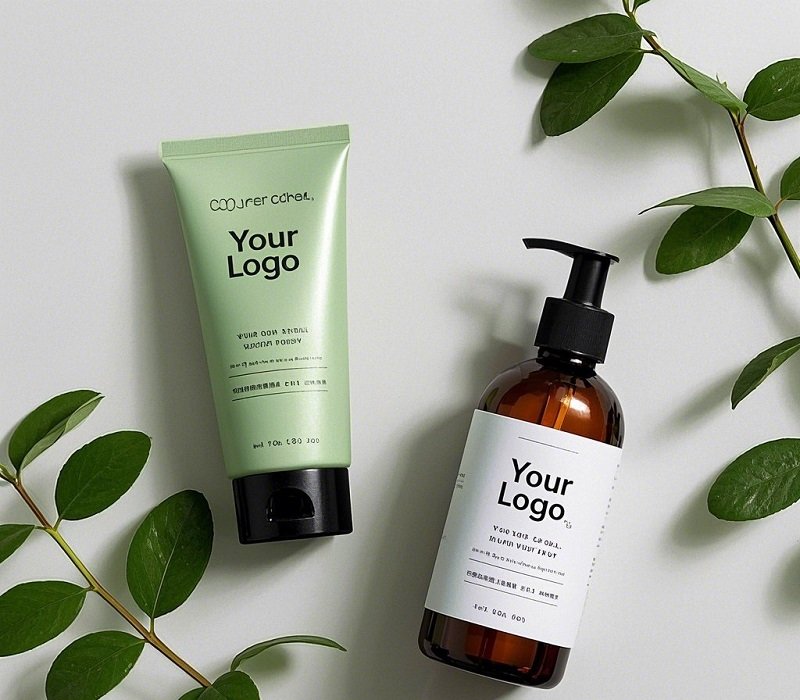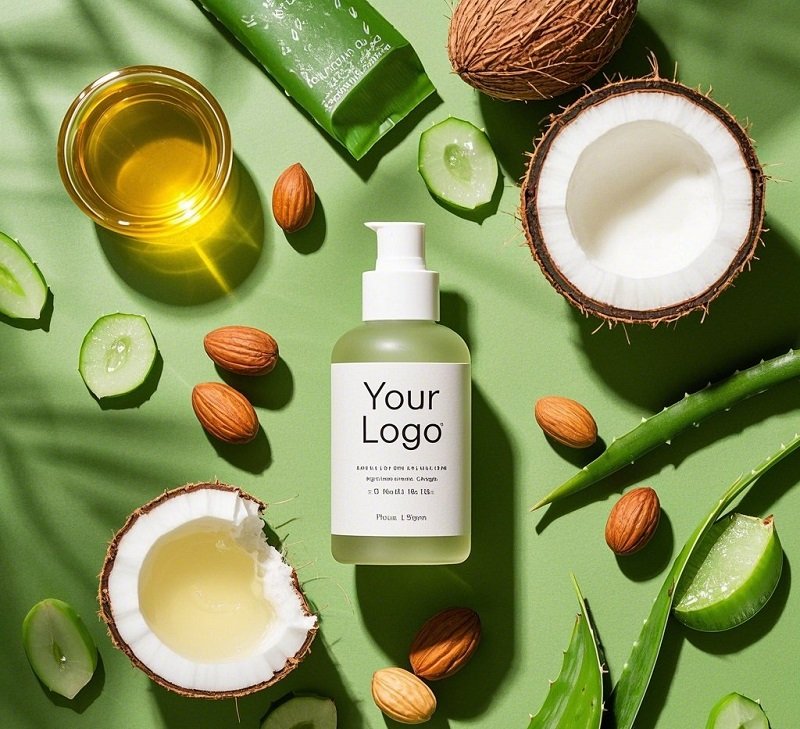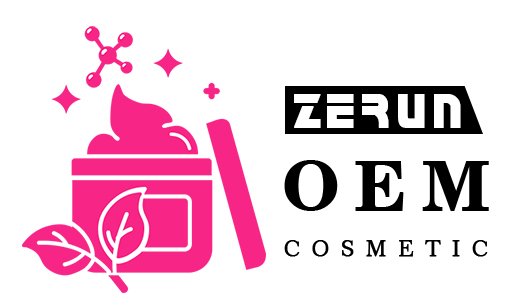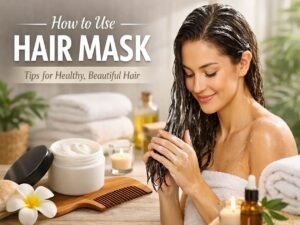In today’s beauty landscape, consumers are increasingly demanding products that are not only effective but ethically produced. The rise of vegan skincare is more than just a trend—it’s a movement toward transparency, sustainability, and compassion in the cosmetics industry.
Vegan skincare is an ethical, eco-friendly approach to beauty that excludes all animal-derived ingredients and by-products. It emphasizes plant-based formulations, cruelty-free testing, and sustainable sourcing to deliver effective skin care while respecting animal welfare and reducing environmental impact. This commitment fosters innovation and consumer trust, marking a shift towards mindful, responsible beauty choices.
What is Vegan Skincare?
Vegan skincare is more than a buzzword—it’s a transformative approach to beauty that emphasizes ethical production, environmental sustainability, and personal well-being. Unlike conventional products, vegan skincare formulations are entirely free of animal-derived ingredients and are often developed alongside cruelty-free practices. This commitment not only aligns with ethical consumer values but also often results in gentler, more natural products.
Imagine switching to a skincare routine that nourishes your skin while also safeguarding animal welfare and reducing your ecological footprint. This journey into vegan skincare will uncover its core principles, ingredient innovations, and the impact it has on both you and the environment.
Defining Vegan Skincare
At its core, vegan skincare refers to beauty products created without any animal-derived ingredients or by-products. This means that everything from your moisturizer to your cleanser is formulated solely with plant-based or synthetic components. Importantly, while vegan products typically avoid animal ingredients, they also often adhere to cruelty-free practices—ensuring no animals are harmed during testing.
Key Characteristics
- Exclusion of Animal Ingredients: Ingredients such as beeswax, lanolin, collagen, and even certain vitamins sourced from animals are completely omitted.
- Ethical Production: Many vegan skincare brands are committed to cruelty-free testing, meaning that no animal testing is involved at any stage of product development.
- Transparency in Sourcing: Authentic vegan brands provide clear, honest information about where and how their ingredients are sourced.
The Philosophy Behind Vegan Skincare
Vegan skincare is driven by a philosophy that extends far beyond the ingredients list. It embodies a commitment to ethical consumerism, environmental responsibility, and holistic health.
Ethical Considerations
- Animal Welfare: Avoiding animal-derived components directly supports the ethical treatment of animals. Consumers can feel confident that their products do not contribute to animal exploitation or cruelty.
- Sustainability: Many vegan brands invest in eco-friendly practices. From sustainable farming methods for plant ingredients to recyclable or biodegradable packaging, every step is designed to minimize environmental impact.
- Transparency: In today’s market, informed consumers demand full disclosure about what goes into their products. Vegan skincare brands often provide detailed ingredient lists and production processes, fostering a high level of trust.
Health and Personal Benefits
- Gentle Formulations: Without animal fats or proteins, many vegan products are less likely to cause irritation or trigger allergic reactions—making them suitable for sensitive skin.
- Nutrient-Rich Ingredients: Plant-based formulations often include high concentrations of antioxidants, vitamins, and minerals that support skin health, combat aging, and reduce inflammation.
Key Ingredients in Vegan Skincare
The effectiveness of vegan skincare lies in the rich, natural ingredients chosen to nourish and protect the skin. Here are some of the most common and beneficial ingredients found in vegan formulations:
Natural Oils and Butters
- Coconut Oil: Widely known for its deep moisturization and antibacterial properties.
- Argan Oil: Rich in vitamin E and fatty acids, it helps repair and maintain skin elasticity.
- Shea Butter: Provides lasting hydration while soothing dry and irritated skin.
Botanical Extracts
- Aloe Vera: Celebrated for its soothing, anti-inflammatory, and hydrating effects.
- Green Tea Extract: Packed with antioxidants, this ingredient helps protect skin from environmental damage and reduces signs of aging.
- Chamomile Extract: Known for its calming and anti-inflammatory properties, ideal for sensitive or stressed skin.
Vitamins and Antioxidants
- Vitamin C: An essential antioxidant that brightens the skin and promotes collagen production.
- Vitamin E: Supports skin repair and protects against oxidative stress.
- Resveratrol: Sourced from grapes, it is renowned for its ability to protect skin cells from damage and promote regeneration.
Ingredient Comparison Table
| Ingredient | Source | Key Benefit |
|---|---|---|
| Coconut Oil | Coconut fruit | Deep moisturization, antibacterial properties |
| Argan Oil | Argan tree | Nourishes, protects, and repairs |
| Shea Butter | Shea nut (plant-based) | Soothes, hydrates, and softens skin |
| Aloe Vera | Aloe plant | Calms irritation, hydrates, and reduces inflammation |
| Green Tea Extract | Green tea leaves | Antioxidant-rich, combats aging and environmental stress |
| Chamomile Extract | Chamomile flower | Soothes, reduces inflammation, and calms sensitive skin |
Benefits of Vegan Skincare
For the Consumer
- Gentle on the Skin: Vegan products typically use natural, plant-based ingredients that reduce the risk of irritation and allergic reactions.
- Enhanced Skin Health: Rich in antioxidants and essential nutrients, vegan skincare can improve skin texture, brighten the complexion, and slow signs of aging.
- Transparency and Trust: With detailed ingredient lists and ethical sourcing, consumers know exactly what they are applying to their skin.
For the Environment
- Lower Carbon Footprint: Sustainable production methods help reduce greenhouse gas emissions.
- Eco-Friendly Packaging: Many brands opt for recyclable or biodegradable packaging to minimize waste.
- Support for Sustainable Agriculture: Using plant-based ingredients supports environmentally responsible farming practices.
Ethical and Social Impact
- Animal Welfare: Vegan skincare choices support a cruelty-free approach, aligning with ethical values.
- Social Responsibility: Many vegan brands engage in fair-trade practices, ensuring fair wages and safe working conditions for all involved in the production process.
Challenges and Considerations
While vegan skincare offers numerous benefits, it also comes with some challenges that both consumers and producers must navigate:
Formulation Challenges
- Ingredient Alternatives: Replacing animal-derived ingredients can be technically challenging. For example, achieving the same texture or stability without ingredients like collagen or lanolin requires innovation.
- Cost and Accessibility: Some plant-based or synthetic alternatives can be more expensive, which may be reflected in the final product price.
Market Misconceptions
- Effectiveness Myths: There is a common misconception that vegan products are less effective than conventional ones. However, many vegan formulations are backed by scientific research and customer testimonials that highlight their efficacy.
- Certification Confusion: Not every product labeled as “vegan” has undergone rigorous certification. Consumers need to be vigilant and look for recognized seals and certifications to ensure authenticity.
Future Trends in Vegan Skincare
The vegan skincare industry is evolving rapidly, with exciting developments on the horizon:
Technological Advancements
- Innovative Ingredients: Ongoing research is uncovering new plant-based compounds and synthetic alternatives that mimic the properties of animal-derived ingredients.
- Improved Formulations: As technology advances, so does the ability to create more stable, effective, and luxurious vegan skincare products.
Increased Consumer Awareness
- Transparency and Education: As more consumers become informed about the benefits of vegan skincare, demand for fully transparent and ethically produced products will continue to grow.
- Market Expansion: Major brands are beginning to incorporate vegan lines into their product offerings, leading to wider acceptance and availability.
Sustainability Integration
- Eco-Conscious Production: Expect an increase in the use of renewable energy sources and waste-reduction practices in the production of vegan skincare.
- Advanced Packaging Solutions: Innovations in biodegradable and recyclable packaging will further reduce the environmental footprint of beauty products.
Vegan skincare represents a significant shift in the beauty industry—one that marries ethical considerations with high-performance formulations. By eliminating animal-derived ingredients and embracing sustainable practices, vegan skincare offers consumers a way to achieve healthy, radiant skin while making responsible choices for the planet. From the philosophy behind ethical production to the advanced plant-based ingredients used, vegan skincare is setting new standards for transparency, sustainability, and effectiveness.
How Does Vegan Skincare Differ from Conventional Skincare?

Vegan skincare differs by avoiding animal-derived ingredients and prioritizing sustainable, plant-based formulations. In contrast, conventional skincare may use synthetic chemicals or animal by-products, often without strict ethical oversight or environmental considerations.
Ingredient Sources
One of the most fundamental differences is the source of ingredients. While conventional skincare might rely on animal fats, collagen, or casein, vegan skincare opts for alternatives like plant oils, botanical extracts, and synthetic peptides. This shift not only addresses animal welfare concerns but also caters to consumers with sensitivities to animal-based components.
Production Processes and Sustainability
Vegan products are typically produced with an emphasis on sustainability. Many brands invest in renewable energy, eco-friendly packaging, and fair-trade practices. In contrast, some conventional brands may use methods that result in higher carbon emissions or rely on non-renewable resources. The production processes for vegan skincare are often designed to minimize environmental impact.
Comparative Overview
Below is a table summarizing key differences between vegan and conventional skincare:
| Aspect | Vegan Skincare | Conventional Skincare |
|---|---|---|
| Ingredient Source | Plant-based, synthetic alternatives | May include animal fats, collagen, and other animal by-products |
| Testing Methods | Cruelty-free, often certified by ethical organizations | May include animal testing or use ingredients derived from animals |
| Sustainability | Emphasis on eco-friendly production and packaging | Varies; not all conventional brands prioritize sustainability |
| Transparency | High, with clear labeling of ingredient origins | Sometimes less transparent about ingredient sourcing |
| Environmental Impact | Generally lower, with reduced carbon footprint and waste | Can have higher environmental impacts due to resource-intensive methods |
This comparative analysis underscores how vegan skincare not only promotes ethical practices but also often leads the way in sustainability and transparency.
Which Ingredients Are Commonly Used in Vegan Skincare Products?

Common ingredients include plant-based oils (like argan and coconut), botanical extracts (such as aloe vera and green tea), and natural antioxidants. These ingredients work synergistically to nourish, protect, and rejuvenate the skin without the need for animal-derived substances.
Common Plant-Based Ingredients
Vegan skincare harnesses the natural benefits of various plant-based ingredients:
- Aloe Vera: Known for its soothing and hydrating properties.
- Coconut Oil: Provides deep moisturization and has antibacterial properties.
- Argan Oil: Rich in essential fatty acids and vitamin E, it helps repair and protect skin.
- Green Tea Extract: Packed with antioxidants that protect against environmental stressors.
- Shea Butter (Plant-derived): An excellent moisturizer that soothes and softens the skin.
Role of Each Ingredient
Understanding the role of each ingredient can help consumers make informed choices:
- Moisturizers & Emollients: Ingredients like coconut oil and shea butter form a protective barrier on the skin.
- Antioxidants: Botanical extracts, including green tea and grape seed, combat free radicals and slow aging.
- Anti-inflammatory Agents: Aloe vera and chamomile extract reduce skin irritation and inflammation.
- Active Compounds: Plant-derived vitamins and peptides promote skin regeneration and repair.
Ingredient Breakdown Table
The table below provides a snapshot of key vegan skincare ingredients, their sources, and benefits:
| Ingredient | Source | Primary Benefit |
|---|---|---|
| Aloe Vera | Aloe plant | Soothes, hydrates, and reduces inflammation |
| Coconut Oil | Coconut fruit | Moisturizes deeply and has antibacterial properties |
| Argan Oil | Argan tree | Repairs skin, rich in vitamin E and fatty acids |
| Green Tea Extract | Green tea leaves | Powerful antioxidant, combats aging |
| Shea Butter | Shea nut (plant-based) | Softens skin and provides essential moisture |
This breakdown not only highlights the versatility of plant-based ingredients but also underscores how each component plays a vital role in maintaining healthy, radiant skin.
Do Vegan Skincare Products Deliver Effective Results?
Yes, many users report significant improvements in skin hydration, texture, and overall radiance. Scientific studies and customer testimonials indicate that vegan formulations can be as effective as conventional products, often with added benefits such as reduced irritation and environmental friendliness.
Efficacy and Scientific Research
Vegan skincare products often incorporate high-quality botanical extracts that have been proven to improve skin health. Clinical studies suggest that plant-based antioxidants and vitamins can reduce signs of aging, diminish inflammation, and promote overall skin resilience. The absence of certain chemicals found in some conventional products may also lead to fewer skin irritations and allergic reactions.
Customer Testimonials
Many consumers have shared success stories about transitioning to vegan skincare. For example, a recent survey indicated that over 70% of users noticed enhanced skin hydration and a more even skin tone within just a few weeks of switching to vegan products. Testimonials often highlight:
- Reduced redness and irritation in sensitive skin.
- Noticeable improvements in skin texture.
- A more sustainable beauty routine that aligns with ethical values.
Efficacy Data Table
Below is a sample table summarizing user satisfaction and efficacy ratings from a survey of vegan skincare users:
| Parameter | Percentage of Users Reporting Improvement |
|---|---|
| Skin Hydration | 75% |
| Texture & Smoothness | 68% |
| Reduction in Redness | 70% |
| Overall Skin Radiance | 72% |
| Reduced Allergic Reactions | 65% |
This data provides a snapshot of how vegan skincare products are performing in real-world applications, reinforcing their credibility and effectiveness.
Are Vegan Skincare Products Suitable for All Skin Types?
Vegan skincare is formulated to benefit a wide range of skin types, including sensitive, oily, and dry skin. However, as with all skincare, individual responses may vary, and it’s essential to choose products that align with your specific skin concerns.
Suitability by Skin Type
Different skin types have unique needs:
- Dry Skin: Look for deeply hydrating ingredients like aloe vera and coconut oil.
- Oily/Acne-Prone Skin: Opt for lightweight, non-comedogenic formulations featuring tea tree oil or green tea extract.
- Sensitive Skin: Seek out products with soothing ingredients such as chamomile and calendula that minimize irritation.
- Combination Skin: Use balanced formulations that provide moisture without clogging pores.
Expert Opinions
Dermatologists increasingly endorse vegan skincare, particularly for sensitive skin, due to its minimal use of synthetic additives. Experts argue that natural ingredients often result in fewer irritations and allergic reactions. While vegan products are generally safe, a patch test is always recommended to confirm compatibility.
Case Studies and Consumer Experiences
Consider the story of Emma, a long-time sufferer of eczema, who switched to a vegan skincare line after conventional treatments aggravated her condition. Within a few months, Emma noticed reduced flare-ups and calmer skin overall. Such cases underscore the potential benefits of vegan products across diverse skin types.
Practical Tips for Choosing the Right Product
| Skin Type | Recommended Ingredient Focus | Tips |
|---|---|---|
| Dry Skin | Moisturizers, emollients (e.g., aloe, oils) | Look for rich creams and hydrating serums |
| Oily Skin | Lightweight gels, tea tree, green tea | Choose non-comedogenic, oil-free formulations |
| Sensitive Skin | Soothing extracts (e.g., chamomile, calendula) | Test new products on a small area first |
| Combination Skin | Balanced hydration with minimal oils | Use dual-phase products to address variability |
This table helps in making an informed decision based on your skin’s unique needs and the recommended ingredients for optimal care.
How to Identify Authentic Vegan Skincare Brands?
Authentic vegan skincare brands display transparent ingredient sourcing, hold certifications from reputable organizations, and clearly label their products as vegan and cruelty-free. Consumers should research brands and look for third-party verifications to ensure genuine ethical practices.
Certifications and Labels
Look for certification seals from organizations such as:
- The Vegan Society: Confirms the absence of animal-derived ingredients.
- PETA-Approved: Ensures products are cruelty-free and ethically produced.
- Ecocert: Indicates sustainable practices in production.
These certifications serve as a reliable marker of a brand’s commitment to vegan principles.
Research Tips and Consumer Awareness
When evaluating a brand:
- Examine the Ingredient List: Look for any hidden animal derivatives.
- Read Customer Reviews: Experiences can reveal if the product aligns with its vegan claims.
- Investigate the Brand’s History: A long-standing commitment to ethical practices is often a positive sign.
- Check for Transparency: Authentic brands usually provide detailed information about sourcing and production.
Vegan Brand Identification Checklist
| Criteria | What to Look For |
|---|---|
| Clear Labeling | “Vegan” or “Cruelty-Free” certification visible on packaging |
| Third-Party Certifications | Seals from The Vegan Society, PETA, or Ecocert |
| Transparent Ingredient List | No ambiguous terms that might mask animal-derived ingredients |
| Ethical Production Claims | Detailed explanations of sustainable practices |
| Positive Consumer Reviews | Consistent, positive feedback regarding ethical standards |
Following this checklist can significantly increase your confidence when selecting a vegan skincare brand that truly aligns with ethical and sustainable practices.
What Are the Ethical and Environmental Benefits of Choosing Vegan Skincare?
Choosing vegan skincare supports ethical treatment of animals, reduces reliance on non-renewable resources, and promotes sustainable practices. This eco-friendly approach minimizes environmental damage, supports fair labor practices, and helps drive industry-wide changes towards more responsible beauty standards.
Environmental Impact and Sustainability
Vegan skincare production often leverages renewable resources, eco-friendly packaging, and energy-efficient manufacturing processes. Studies have shown that sustainable practices in cosmetic production can reduce carbon emissions and minimize water waste. For instance, many vegan brands now use biodegradable packaging that cuts down on landfill waste.
Animal Welfare and Ethical Considerations
By eliminating animal-derived ingredients and avoiding animal testing, vegan skincare ensures that no animals are harmed during production. This not only aligns with ethical consumer values but also reduces the demand for practices that can be exploitative and inhumane. The ripple effect of such choices encourages other industries to adopt similar ethical practices.
Social and Economic Benefits
Ethical consumerism can drive positive change beyond the beauty industry. When consumers choose vegan skincare, they are often supporting companies that invest in fair-trade practices and community welfare initiatives. This broader impact promotes economic fairness and community development, illustrating how personal beauty routines can contribute to global ethical standards.
Ethical and Environmental Data Snapshot
Below is a table summarizing potential benefits observed in the industry:
| Benefit | Impact |
|---|---|
| Reduced Carbon Footprint | Up to 30% lower emissions compared to conventional methods |
| Less Water Usage | Sustainable brands often use 20-40% less water |
| No Animal Testing | Supports ethical standards and animal welfare |
| Eco-Friendly Packaging | Increased use of biodegradable and recyclable materials |
| Fair Trade Practices | Promotes community welfare and economic equity |
This data demonstrates that the shift to vegan skincare not only benefits personal health but also contributes significantly to broader ethical and environmental improvements.
Conclusion
In essence, vegan skincare transcends the realm of beauty—it’s a movement that redefines how we nurture our skin and honor our planet. By choosing plant-based, cruelty-free formulations, we embrace a lifestyle that values transparency, sustainability, and ethical responsibility. This guide has illuminated how vegan skincare not only delivers tangible benefits for your skin but also fosters a broader commitment to environmental stewardship and animal welfare.
Every product, every ingredient, and every formulation represents a step toward a future where beauty is a reflection of our deepest values. As you contemplate integrating vegan skincare into your daily routine, consider it a personal revolution—a conscious decision to support practices that honor life and protect our shared world. And if you’re ready to innovate your own line of ethical beauty products, remember that Zerun Cosmetic Factory stands ready to assist with custom solutions, expert design, and unwavering quality.
Let your skincare journey be a testament to compassion and creativity, inspiring not just a radiant complexion but a brighter, more sustainable future for all.





